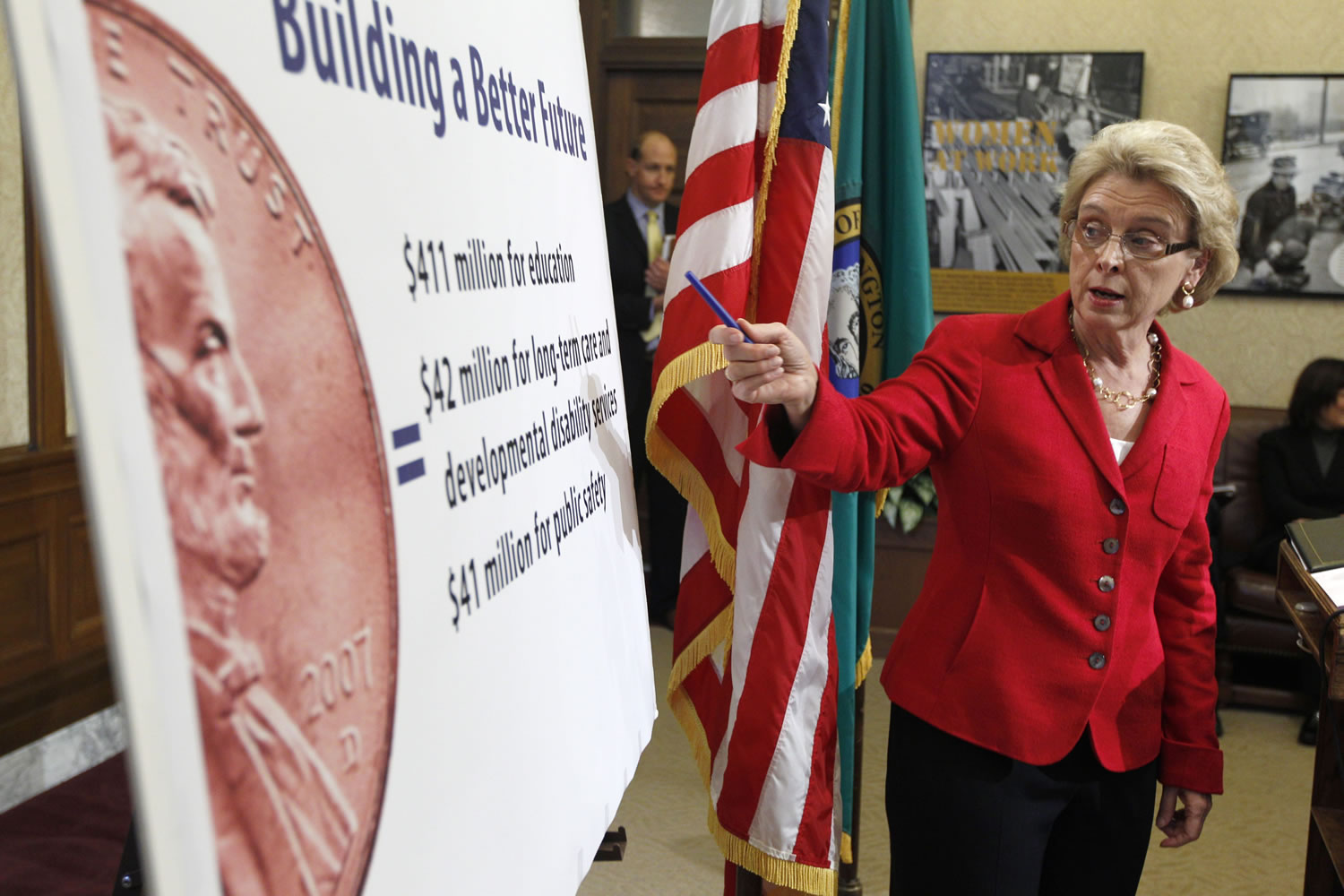This is no time to raise taxes, local Republican lawmakers said Monday, reacting to Gov. Chris Gregoire’s proposal to ask voters for a temporary half-cent increase in the state sales tax.
Democrats offered more nuanced responses, welcoming the prospect of new revenue but declining to embrace Gregoire’s specific proposals for budget cuts, new revenue and restored programs.
Under the governor’s plan, which she will submit to the Leg
islature when it meets in special session next week, revenue from the tax would allow the state to “buy back” $494 million worth of cuts to education, social services and community supervision of ex-offenders. That’s about a quarter of the nearly $2 billion in cuts she identified Monday in her “all-cuts” supplemental 2011-13 budget.
Gregoire will begin stumping for the measure across the state Tuesday morning, beginning with a press conference in Vancouver. If the Legislature refers her measure, it would go to voters at a March special election.




